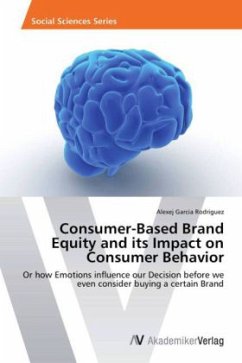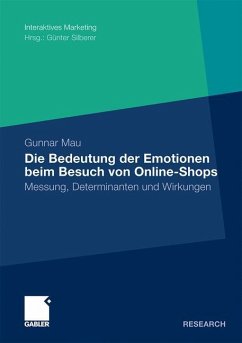
Consumer-Based Brand Equity and its Impact on Consumer Behavior
Or how Emotions influence our Decision before we even consider buying a certain Brand
Versandkostenfrei!
Versandfertig in 6-10 Tagen
24,99 €
inkl. MwSt.

PAYBACK Punkte
12 °P sammeln!
A product is something that is made in a factory; a brand is something that is bought by a customer. A product can be copied by a competitor; a brand is unique. A product can be quickly outdated; a successful brand is timeless. {Stephen King, WWP Group}. But what exactly is it that makes a brand successful? And how can this success be quantified? These highly relevant questions have been the subject to several studies, as identifying the sources of brand success would provide marketers with an important tool to manage their brand. For more than 20 years, research on the power of brands has mai...
A product is something that is made in a factory; a brand is something that is bought by a customer. A product can be copied by a competitor; a brand is unique. A product can be quickly outdated; a successful brand is timeless. {Stephen King, WWP Group}. But what exactly is it that makes a brand successful? And how can this success be quantified? These highly relevant questions have been the subject to several studies, as identifying the sources of brand success would provide marketers with an important tool to manage their brand. For more than 20 years, research on the power of brands has mainly been driven by means of traditional measurement methods, such as surveys and focus group interviews. But are customers really able to verbalize why they prefer one certain brand to another? Based on a theoretical and conceptual work, this book analyzes the different theories of Consumer-Based Brand Equity in literature and compares them with relevant findings in neuroscience. To gain further insights on possible areas of application for neuroscientific measurement, qualitative expert interviews with leading marketing managers of BMW, Hubert Burda Media, Puma, Procter & Gamble and McKinsey & Company were conducted.












